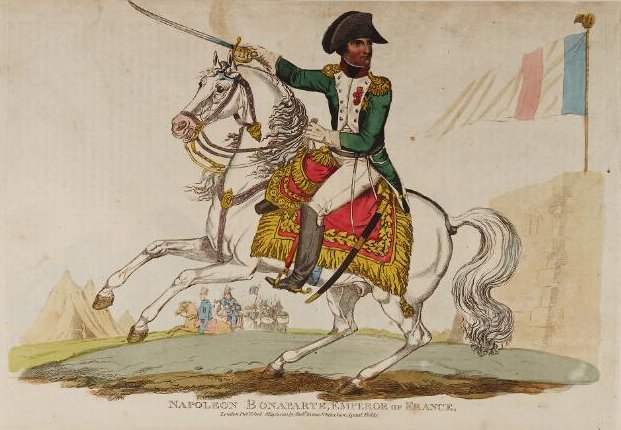
What did Napoleon do for us (and Europe)?
There’s more to Napoleon than you think
Many Napoleonic wars enthusiasts dismiss Napoleon as a tyrannical megalomaniac who was good for nothing but war and who achieved little that benefitted France. This ignores the introduction of the prefecture system which enabled effective government across the whole country, his reform of the civil legal code which has a significant impact on legal principles across Europe even today, and his enthusiastic support of technical improvements across a range of scientific endeavours.
I’m writing this now because I have been reading Valerie Poore’s excellent blog about barge life in the Netherlands. She’s recently been writing about the history of some of the canals on the French-Belgian border and Napoleon’s name comes up time and time again. It was Napoleon who pushed for the Canal de Saint Quentin to be finished, a project that connected Paris by water to the coalfields of Belgium. It was originally conceived in the 1730s but abandoned due to other political priorities. Napoleon resurrected the scheme in 1801 and, with his drive and support, it was opened in 1810.

The Canal de Saint Quentin was just part of Napoleon’s vision for expanding the canal networks that linked France with its neighbours. In 1806 he gave orders to build the Canal de la Sensée (originally Censée) to link the Scarpe River and the Escaut River (English: Scheldt). Work didn’t start, though, until 1819, long after his defeat at Waterloo. It was open to navigation in 1820 and is still a working canal today.
This reminded me that when Napoleon invaded Egypt, in part to provide an overland route for his armies to march to India, he considered the idea of building a canal to link the Mediterranean to the Gulf of Suez. He had his surveyor, Jacques-Marie Le Pere carry out a survey on the feasibility of excavating a canal north from Suez. Unfortunately, attacks from Bedouin combined with extremes of temperature and vicious dust storms meant that his findings were false. He concluded that the Red Sea was almost 33 feet higher than the Mediterranean and that any attempt to link the two would lead to massive flooding. Only later was his error detected. The sea levels were in fact almost the same and just over 50 years later the Frenchman, Ferdinand de Lesseps, was to start construction of the modern canal. The historian Paul Strathern claims, though, that “the modern inauguration of this project, and the French involvement in it, certainly originated with Napoleon.”
It wasn’t just canals that Napoleon was enthusiastic about. Like all great generals going back to the time of the ancient Persians, he recognised the importance of roads in moving troops around his growing empire. Military roads were built connecting France to Germany, Italy, Spain and so on. In Croatia, the road known as ‘Napoleon’s Road’ or the ‘French Road’ was built primarily thanks to Napoleon’s military commander and duke of Dubrovnik, August Marmont. The 61km road extends from the south-east of Orebić to the north-west of the peninsula. Communication axes were an absolute political priority for Napoleon. Natural boundaries, such as the Alps between France and Italy, were traversed using post stations that allowed mail transit from one side to the other.
Within France, roads linked Paris to the regions, consolidating the capital’s grip on the provinces.
Napoleon’s enthusiasm for construction projects didn’t stop at roads and canals. He identified the lack of a proper sewage system as one of Paris’s main problems and, under his rule, the first vaulted sewer network was built. It was only 30 km long, but it marked a major step forward in the disposal of Paris’s waste and he regarded it as the most important thing he did for the city. The sewers followed the pattern of the streets above and were labelled with street names so you could and still can navigate the city as straightforwardly underground as above. Here’s part of it, which I photographed on a fascinating underground adventure.

So besides bringing years of war, economic turmoil and political repression to virtually all of continental Europe, what did Napoleon do for us? The answer is: more than you think.
References
Valerie Poore (2023) Running down the rabbit hole of research https://rivergirlrotterdam.blogspot.com/2023/07/running-down-rabbit-hole-of-research.html
Paul Strathern (2008) Napoleon in Egypt Vintage Books: London
Europeana Napoleon and urbanism in the 19th century: Protecting oneself https://www.europeana.eu/en/exhibitions/napoleon-and-urbanism-in-the-19th-century/protecting-oneself-destruction-and-reconstruction-of-the-city
